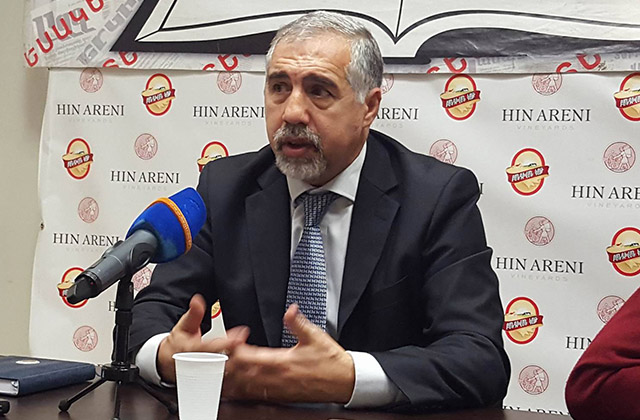That Legislation is Absurd for Armenia, however, it’s Implemented: Gagik Aghajanyan

“Pursuant legislation of our country, the vehicle should pay AMD 220 for every kilometer of transit, passing through your country, besides, customs fee for every 100km is AMD 10 thousand. There are also entrance and exit fees. In short, amount is rather serious. The most absurd in this is that the vehicle while being transported, is obliged to be in the territory of Armenia no more than 10 days, it may leave the country in 3 days, by paying the road fee for passing from border to border. No you can imagine, he/she is back just in 2 days, and he/she is told to pay for leaving the country, i.e. such figures are set, by which it isn’t profitable to pass through your country. ”
“There is no stimuli for the same automobile company to return to your country and pass through your country,” Gagik Aghajanyan, CEO of “Apaven” international freight company, noted at today’s meeting with the reporters, adding that this legislation was borrowed from the British one, without taking into account, that Britain is an island, “for Armenia this legislation is absurd, however, it’s being applied.”
He noted that we have an interstate accord with Georgia, pursuant which the two eliminated road taxes:
“But if we compare the notion of transfer regime in Georgia and in Armenia, we’ll see big difference. In general, there are two transfer regimes in the world—direct and indirect. Direct transfer provides entry from customs post, and from other customs post—to a third country. Indirect transfer regime, which completely isn’t applied in Armenia, is the following: when freight enters your country, it reaches customs warehouse, out of some reasons it stays there for some time, is being reload to another vehicle and leaves your country. From the very start the freight has a status of a transfer regime despite the fact, by which transportation means it enters your country, and in Armenia it’s not considered as transit.”
In his words, if formerly Armenia wasn’t attractive for any transit, the situation has changed now, and such a demand will exist, “For instance, the freight will be transferred from Georgia through a railway to Armenia, the railway doesn’t reach Iran, thus transportation means should be changed, and we want that it was enshrined by law as a transit. The freight should obtain a status, and not the transportation means.”
The speaker also added, that in connection with oil price fall, prices for freight transfer have decreased in the whole world, “Today transfer of 20 pound container (20-25 tons) to China costs just USD 1600-1700, a ridiculous sum, and the transportation means doesn’t obstacle us to develop production.”

























